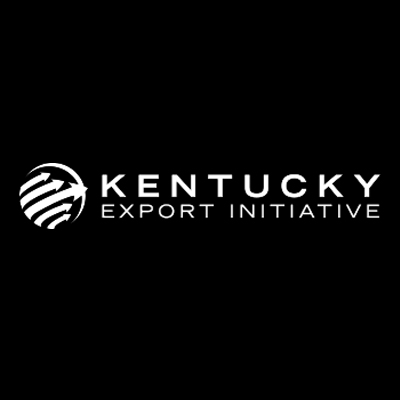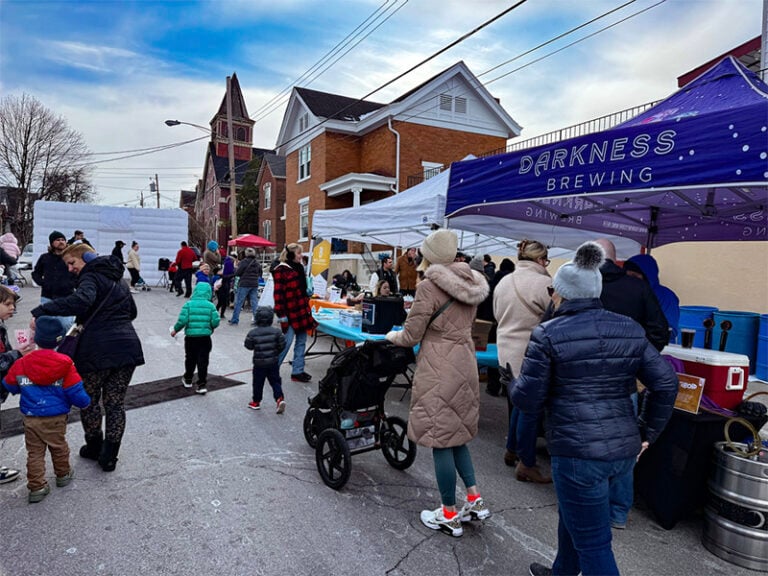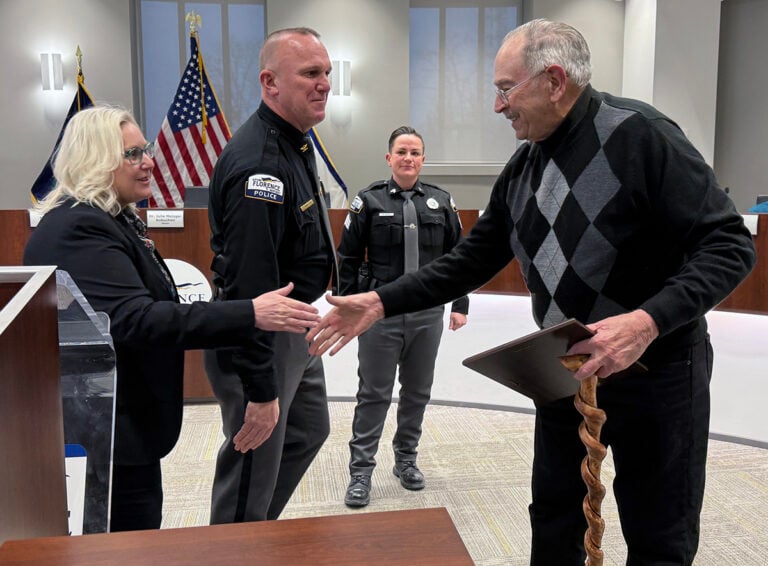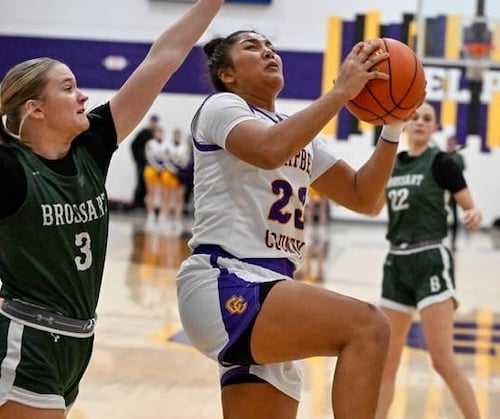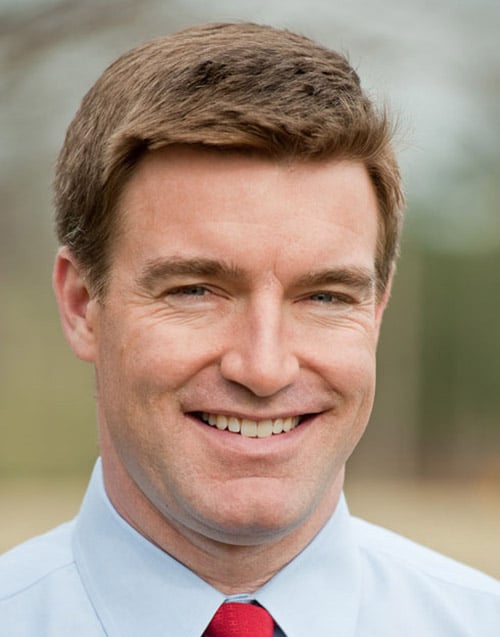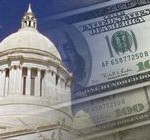Earlier this month, nearly 1,500 state legislators, legislative staff, governmental officials, and family members from 15 states attended the four days of the Southern Legislative Conference (SLC) Annual Meeting in Lexington.
SLC is the southern office of the Council of State Governments, which has its national headquarters in Lexington.
Legislative organizations such as SLC, the National Conference of State Legislatures (NCSL), and the American Legislative Exchange Council (ALEC) fund many of their activities with membership dues and contributions from businesses and organizations.
Businesses and organizations that employ lobbyists in Kentucky can make contributions to organizations that are exempt from taxation under Section 501(c)(3) of the federal tax code, and those contributions are not required to be reported as “lobbying expenditures”, unless they are specifically earmarked for receptions, meals, or events to which Kentucky legislators are invited.
The program for SLC’s annual meeting listed the sponsors who supported the conference with financial, material, or other types of contributions. SLC sponsorship information identified seven levels of sponsorship, including Underwriter ($100,000 and above); Partner ($75,000 – $99,999); Platinum ($50,000 – $74,999); Gold ($25,000 – $49,999); Silver ($10,000 – $24,999); Bronze ($5,000 – $9,999); and Supporter ($2,500 – $4,999).
If all sponsors gave the minimum in their level of sponsorship, at least $1.67 million in money, goods, and services was donated to the Lexington conference. The sponsors that employ lobbyists in Kentucky are listed below in bold type.
SLC’s Underwriters were: Keeneland, Kentucky Distillers Association, LG&E and KU Energy, University of Kentucky Athletics, and University of Kentucky Health Care.
Kentucky Power, a unit of American Electric Power, is listed as a Partner, while Platinum sponsors were: Altria Client Services, City of Lexington, Duke Energy Kentucky, Kentucky Coal Association, RAI Services (parent of R.J. Reynolds Tobacco), and United Parcel Service.
SLC’s Gold sponsors were: AARP, Anthem, AT&T, CVS Health, Genentech, Kentucky Association of Electric Co-operatives: East Kentucky Power Cooperative and Big Rivers Electric Corporation, Kentucky Highway Industries: Kentucky Association of Highway Contractors, Plantmix Asphalt Industry of Kentucky, and Kentucky Crushed Stone Association; MGM Resorts International; Norton Healthcare; Passport Health Plan; Republic Services, Inc.; and WellCare Health Plans.
The Silver sponsors for the Lexington meeting were: Baptist Health, Buffalo Trace Distillery, Churchill Downs, Inc., Columbia Gas of Kentucky, Comcast, CSX Corporation, GlaxoSmithKline, Kentucky Beverage Association, Kentucky Chamber of Commerce, Kentucky County Clerks Association, Kentucky Employers Mutual Insurance, Kentucky Farm Bureau, Kentucky Guild of Brewers, Kentucky Horse Park, Kentucky League of Cities, Kentucky Retail Federation, Koch Companies Public Sector, Marathon Petroleum Corporation, McCarthy Strategic Solutions, Pharmaceutical Care Management Association, Phillips 66, RJ Corman, State Farm Insurance, Swedish Match, Toyota, and Walmart.
The Bronze sponsors were: American Chemistry Council, Advantage Capital Partners, AmeriHealth Caritas, Amgen, Anheuser-Busch, Atmos Energy Corporation, Big Ass Solutions, Brotherhood of Maintenance of Way Employees/Teamsters, CareSource–Kentucky, Charter Communications, Community Ventures Corporation, Dart Container Corporation, EQT Corporation, Express Scripts, Inc., HCA, Home Builders Association of Kentucky, ITG Brands, Insurance Institute of Kentucky, Kentucky American Water & Tennessee American Water, Kentucky Association of Counties, Kentucky Credit Union League, Kentucky Hospital Association, Kentucky Optometric Association, Legalize Kentucky Now, LexisNexis, Mountain Valley Pipeline, Perdue Farms, T-Mobile USA, Inc., VisitLEX, and Wine & Spirits Wholesalers of Kentucky.
SLC’s Supporters in Lexington were: American Pharmacy Services Corporation, Babbage Cofounder, Chevron, Commerce Lexington, Cull & Hayden PSC, Eli Lilly and Company, Enova International, Goss Samford, Greater Louisville Inc., Independent Insurance Agents of Kentucky, Kentuckians for Better Transportation, Kentucky Association of Manufacturers, Kentucky Association of Realtors, Kentucky Beer Wholesalers Association, Kentucky Blood Center, Kentucky Cable Telecommunications Association, Kentucky Council of Area Development Districts, Kentucky County Judge/Executive Association, Kentucky Justice Association, Kentucky Malt Beverage Council, Kentucky Medical Association, Kentucky Professional Fire Fighters, Kentucky School Boards Association, Kentucky Society of CPAs, KentuckyOne Health, Lexmark International, Louisville Convention & Visitors Bureau, Merck, National Association of Chain Drug Stores, Owensboro Health, Procter & Gamble, St. Elizabeth Healthcare, Wells Fargo, and Windstream Communications.
Whitfield broke House rules, committee finds
The House Committee on Ethics publicly reprimanded U.S. Rep. Ed Whitfield for violating House rules in connection with his wife’s former lobbying activities on behalf of the Humane Society of the United States.
The committee found that Whitfield failed to prohibit lobbying contacts between his wife, Connie Harriman-Whitfield, and his staff, and that he “dispensed special privileges” to her, warranting the committee’s formal “reproval” of the 11-term congressman from Hopkinsville in Western Kentucky.
While the committee accepted Whitfield’s assertion that he did not intentionally disobey House rules and did not do so to benefit himself or Harriman-Whitfield, it nevertheless concluded that he “failed to take the proper care to avoid” violations. Those violations were “significant and numerous enough” to warrant discipline, according to the committee’s report.
Harriman-Whitfield was senior policy adviser for the Humane Society Legislative Fund, which describes itself as “a separate lobbying affiliate” of the Humane Society of the United States. Politico reported last July that she was no longer lobbying for the HSLF.
But from January 2011 until “at least 2015,” Whitfield allowed his wife to contact his staff regarding federal legislation in which the HSLF had an interest, according to the committee’s report.
Those contacts included Harriman-Whitfield’s participation in arranging meetings involving other House members and advocates for legislation that Whitfield sponsored and the HSLF supported, seeking to ban the practice of “soring” show horses — applying “foreign substances” to alter a horse’s gait.
Harriman-Whitfield’s role also included “directly advocating” that her husband vote for certain legislation, and that his staff “alter the language” of certain bills, the committee found.
These contacts “illustrated Ms. Harriman’s unique level of access to, and influence on, Rep. Whitfield’s staff,” the report states.
The committee also questioned Whitfield’s assertion to investigators that he was unaware until October 2013 of the House rule against spousal lobbying. That was nearly three years after Harriman-Whitfield registered as a lobbyist.
Whitfield had a duty to know the applicable rules, the committee concluded. Moreover, its report cites an email sent by Harriman-Whitfield to her husband in December 2012, referring to a newspaper reporter’s inquiry about her lobbying work.
In addition, members of Whitfield’s staff knew that his wife was a lobbyist “well before October 2013,” the committee found, raising questions about how and why they were aware of her status, “yet Rep. Whitfield remained unaware.”
Whitfield also claimed to investigators that his wife’s efforts would have constituted lobbying only if she intended to influence him or his staff, according to the report, and that he had received no “public guidance” leading him to believe otherwise.
But the Humane Society Legislative Fund viewed her activities as being on its behalf, the committee found, and Whitfield never responded to a suggestion made to his wife by the committee’s chief counsel that he request a formal opinion about the propriety of her lobbying contacts.
Whitfield claimed that those contacts were merely “reminders” because he and his wife were “completely aligned” on all issues she discussed with his staff. The committee called that a “mischaracterization” of the facts, in part because he voted against two legislative amendments that Harriman-Whitfield and the HSLF supported.
Whitfield also contended that his wife’s access to and influence on his staff didn’t change once she became a lobbyist. That they remained the same “is precisely the point,” the committee concluded. Her access, and the staff’s treatment of her, “should have changed accordingly. But by all accounts, nothing changed.”
Whitfield, who is not seeking reelection, issued a statement saying he accepted the committee’s decision and stressing that any wrongdoing on his part was “completely unintentional.”
“I have done my best to lead my life — both as a citizen and as a Member of Congress — with absolute integrity and honesty,” Whitfield’s statement said. “Despite adhering to those principles, I made a mistake.”
From Legislative Ethics Commission Communications







